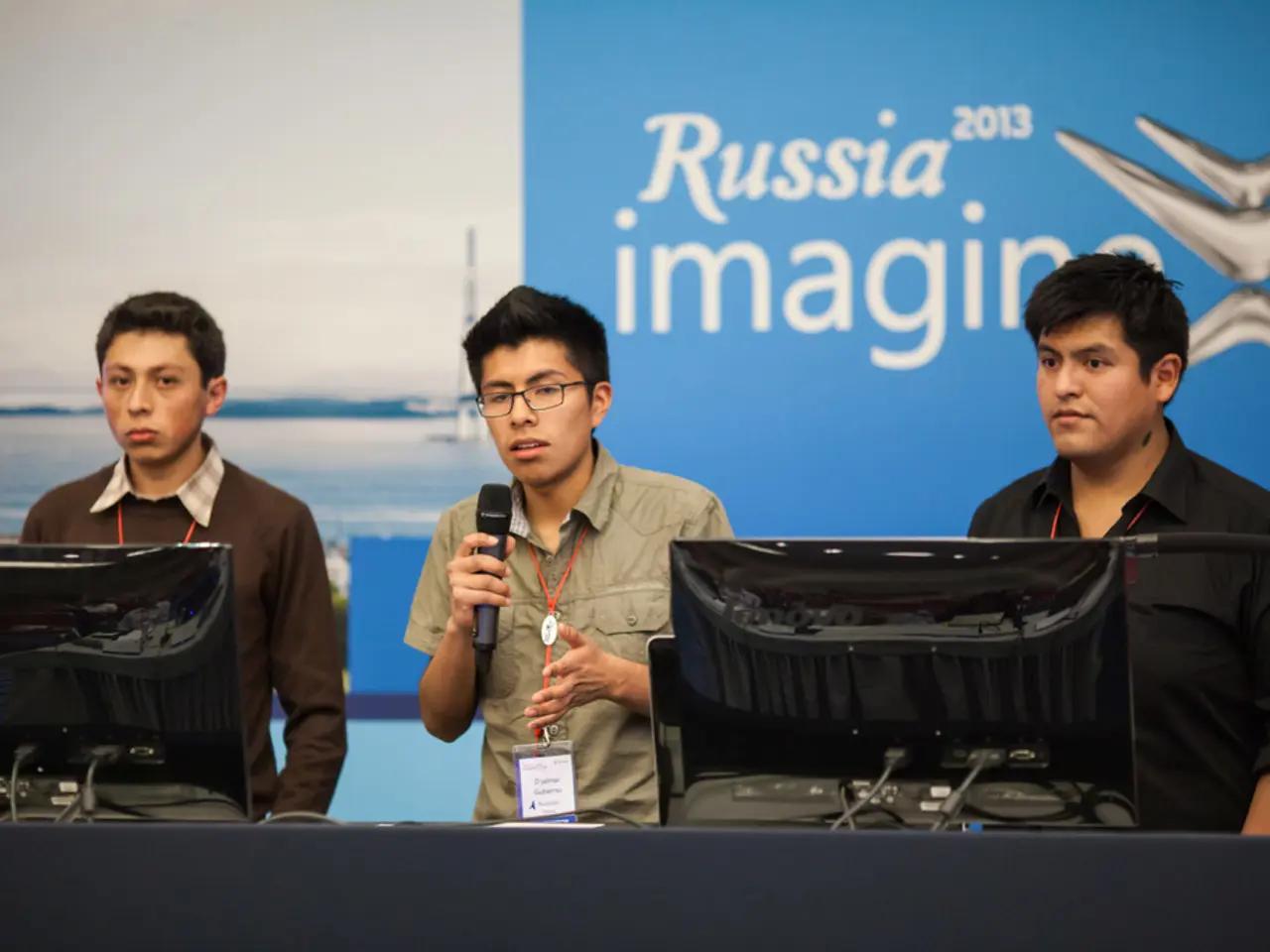"NVIDIA's Chief Security Officer Confirms Absence of Shutdown Mechanisms, Hidden Access Points, and Surveillance Software in Their GPUs, Sparking Speculation Among Some About Their Existence"
In the heart of the tech industry, NVIDIA, a leading manufacturer of GPUs, finds itself at the centre of a storm of controversy in China. The Chinese government and state media have raised concerns about potential security vulnerabilities in NVIDIA's H20 AI GPUs, alleging the presence of "back doors" - hardware or software exploits that could allow remote control or surveillance [1][3].
These accusations have been met with a strong denial from NVIDIA. David Reber Jr., the company's Chief Security Officer, penned an official blog post titled "No Backdoors. No Kill Switches. No Spyware" to address these concerns [2]. In the post, Reber Jr. emphasizes that trustworthy systems are not built with backdoors or kill switches.
The blog post also highlights the established law that requires companies to fix vulnerabilities, not create them. Reber Jr. uses the Clipper Chip incident from the 1990s as an example of the dangers of baked-in vulnerabilities in computing hardware. The Clipper Chip, created by the NSA, had a backdoor accessible by the US government, which was later exploited by bad actors [4].
NVIDIA reiterates that government backdoors undermine user confidence in the security of systems and create single points of failure. The company compares a chip with a built-in vulnerability to a new car with a remote control for the parking brake in the hands of the dealership [2].
The current concerns come at a time when NVIDIA is ramping up production to meet the newfound Chinese demand for H20 AI chips. The company currently has 600,000 to 700,000 H20 chips waiting to be sold, and needs an additional 300,000 from TSMC to meet this demand [1].
NVIDia's GPUs are used in numerous high-profile industries, as detailed in Reber Jr.'s blog post [5]. The company's stance on open-source software is mentioned but not elaborated upon in the context of the article.
The US government rescinded the ban on NVIDIA selling H20 AI GPUs to China on July 14, 2025 [6]. Despite this, the Chinese Cyberspace Administration has requested a meeting with NVIDIA executives to discuss these potential security vulnerabilities [1].
The recent exploits like Spectre and Meltdown, which affected many modern Intel, AMD, and Qualcomm processors, have shown the devastating impact of such vulnerabilities on global digital infrastructure [7]. NVIDIA maintains that there are no back doors, kill switches, or spyware in NVIDIA chips.
In response to the call by state media for a boycott of the H20 AI GPUs in China, NVIDIA urges users to trust in the security of their products and reaffirms its commitment to building secure, reliable, and trustworthy technology.
- NVIDIA, a leading manufacturer of GPUs, is facing controversy in China over potential security vulnerabilities in their H20 AI GPUs.
- David Reber Jr., NVIDIA's Chief Security Officer, recently wrote a blog post titled "No Backdoors. No Kill Switches. No Spyware" to address these concerns.
- The blog post emphasizes that NVIDIA does not build trustworthy systems with backdoors or kill switches.
- Reber Jr. uses the Clipper Chip incident from the 1990s as an example of the dangers of baked-in vulnerabilities in computing hardware.
- NVIDIA's GPUs are used in numerous high-profile industries, and their stance on open-source software is mentioned but not elaborated upon in the context of the article.
- The US government has rescinded the ban on NVIDIA selling H20 AI GPUs to China, but the Chinese Cyberspace Administration has requested a meeting to discuss potential security vulnerabilities.
- NVIDIA maintains that there are no back doors, kill switches, or spyware in NVIDIA chips, in response to recent exploits like Spectre and Meltdown that affected various processors, and urges users to trust in the security of their products.




